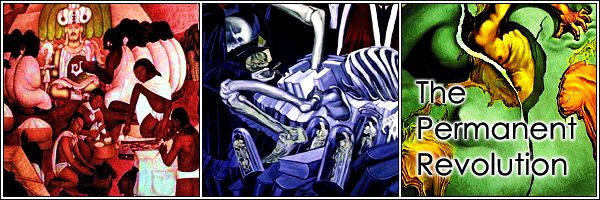Stopping the Infernal Machine (Book Review)
James Sheehan’s Where Have All the Soldiers Gone? is an attempt to grapple with this issue. His thoughtful romp through Europe’s 20th Century is refreshingly brief. Instead of being bogged down in detail, his is a concise and leisurely tour of the major changes in Europe’s character. He traces the origins of militarism and pacifism in early 20th Century Europe and their relationship with the relentless logic of European ‘progress’, that is, the exponential growth of the means of destruction so that our wars were fought, in turn, with weapons that were democratic, industrial and (almost) atomic. Sheehan chronicles the ‘invisible revolution’ that occurred after WW2 under the American nuclear umbrella: European states found their militaries increasingly impotent (useless), under-funded, and even their very culture ‘civilianized’. With this happening in the West, the transformation of the East and the end of the Cold War seem almost an afterthought, despite the fact that “Nowhere in the world, [were] there so many soldiers, so much war material, and so many nuclear weapons concentrated in such a compressed area as in the 2 German states.”
The book is not a comprehensive description of developments in Europe. Nor is the work notable for the intensity of its analysis. This makes the book a very pleasant, easy read, neither a slog nor demanding intellectually. It is more a narrative made up of little known facts on the topic, like The Economist’s prediction in September 1914 of the “economic and financial impossibility” of continuing war for more than a few months or a Summer 1941 British report that only one third of bombs over Germany were within five miles of their target.
Best, however, are the pearls of wisdom Sheehan shares on war and peace, as relevant to today as ever. He describes the vicious circle, present in wars of occupation as much as any misplaced investment, that the need for victory demands sacrifice, which in turn makes victory all the more necessary. He describes the French WW1 commander General Joffre who “did everything to keep the offensive alive, exercising the kind of leadership which if successful seems brave and resolute, and if it fails, inflexible and wasteful.” This is what is at stake in the legacies of Truman, LBJ and Bush II. Noting how, although WW1 and WW2 had started over Serbia and Poland, no one cared about them by the end of the war, he explains with a quote from Raymond Aron: “The very situations that bring about a modern war are destroyed in its wake.” What does it matter, today, whether Saddam had WMDs? He also says how, perhaps with certain politicians in his sights, “Fatalism is often a mask for failure.”
Although Sheehan is clearly sympathetic to his subject, but he has no illusions and does not see how any common European defense or foreign policy could function in a crisis. He reserves a great role for the US in incubating the fledgling European zone of peace, arguing that peace made European unity possible, and not the other way around.
One might remain dissatisfied with the lack of any rigorous analysis, the uneven almost anecdotal description of events, or criticize the occasional resort to “great man” history on Sheehan’s part. Nonetheless, he has done a great service in clearly defining the nature of the great shift in Europe. To the question “How did Europe go from Y to X?” he has gone a long way to define exactly what we mean by the Europe of 1914 and the Europe of 2003.
Most disturbing for me were his notes on the Yugoslav Wars and his description of these people who had turned against their compatriots in war and genocide. We are used to blood and death in some part of Latin America, Africa or Asia, but it is different for Europeans to watch, in this nation sporting sunny Mediterranean coastal tourism, Yugoslavs slaughter each other even though they “look like us, wear jeans, trainers and carry their belongings in familiar plastic bags.” Some 19th Century thinkers thought (with alarm!) that if Europeans knew 2 generations of peace then they would were forget how to wage war and the meaning of sacrifice. Yugoslavia means, it seems to me, that even as Europe has for now surpassed the relentless logic of her history, it only takes a crisis for a vicious circle, the infernal machine, to return.



0 Comments:
Post a Comment
<< Home